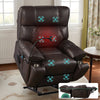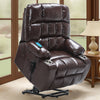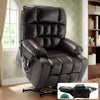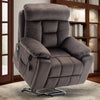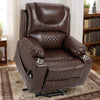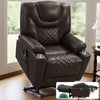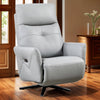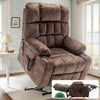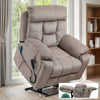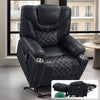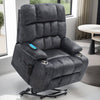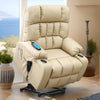Understanding High Blood Pressure and Its Risk Factors
The Basics of High Blood Pressure
High blood pressure, or hypertension, is when blood pushes too hard against artery walls. Normal blood pressure is below 120/80 mmHg. High blood pressure is 130/80 mmHg or higher. It often has no clear signs. That's why it's called the 'silent killer'. Regular check-ups can catch it early. If not treated, it can lead to serious health issues. These include heart disease, stroke, and kidney problems. Your heart works harder when blood pressure is high. This can weaken your heart over time. Knowing your numbers is key. Talk to your doctor about what your blood pressure means for you. They can help you understand your risk and how to manage it.

Identifying Common Risk Factors
Several things can raise your risk of high blood pressure. Age is a big factor. As we get older, our risk goes up. Family history plays a role too. If your parents had it, you might get it. Being overweight makes it more likely. What you eat matters a lot. Too much salt and not enough potassium can be bad. Not moving enough is another risk. Smoking and drinking too much alcohol can raise blood pressure. Stress can make it worse. Some health issues, like diabetes, also increase the risk. Race can be a factor too. African Americans are at higher risk. Knowing these risks can help you make better health choices. Talk to your doctor about your personal risk factors.
Birth Control and Its Impact on Blood Pressure
How Birth Control Pills Work
Birth control pills use hormones to prevent pregnancy. They stop the body from releasing eggs. The pills also make it hard for sperm to reach an egg. There are two main types of pills. Combined pills have estrogen and progestin. Mini-pills only have progestin. These hormones can affect different parts of your body. They might change how your blood clots. They can also affect your blood sugar and blood pressure. The pill can have good and bad side effects. Some women have lighter periods. Others might feel sick to their stomach. It's key to talk to your doctor about which pill is right for you. They can help you weigh the pros and cons of each type.

Potential Effects on Blood Pressure
Some birth control pills might cause a small rise in blood pressure. This is more likely with pills that have estrogen. Women over 35 or who smoke have a higher risk. Most women won't see a big change in their blood pressure. But for some, the increase could be more noticeable. If you already have high blood pressure, the change might be bigger. Not everyone will have this side effect. Your doctor can help you watch for any changes. If you notice your blood pressure going up, tell your doctor right away. They might need to change your birth control method. The risk is usually small, but it's important to be aware. Regular check-ups can help catch any issues early.
Strategies to Manage High Blood Pressure with Birth Control
Monitoring Blood Pressure Regularly
Checking your blood pressure often is key when using birth control. This is extra important if you've had high blood pressure before. Your doctor might want you to check more often when starting a new pill. You can use a home blood pressure monitor. Keep track of your readings in a notebook. Share this info with your doctor at check-ups. If you see your numbers going up a lot, call your doctor. They might need to change your birth control method. Regular checks help catch problems early. Your doctor can teach you how to use a home monitor correctly. They can also help you understand what your numbers mean. Don't skip your regular check-ups, even if you feel fine.

Adopting a Healthy Lifestyle and Diet
A healthy lifestyle can help control blood pressure while on birth control. Eat lots of fruits and veggies. Cut back on salt and fatty foods. Choose whole grains instead of white bread or pasta. Drink less alcohol. If you smoke, try to quit. Keep a healthy weight by eating right and staying active. Small changes can make a big difference in your blood pressure. Talk to your doctor about diet tips that work for you. They can help you make a plan that fits your life. Remember, what you eat affects your whole body. A good diet can help manage blood pressure and overall health. It's not just about the pills, but your whole lifestyle. Every healthy choice counts.
Incorporating Exercise and Stress Management Techniques
Exercise is great for managing blood pressure. Try to move for 30 minutes most days. Walking, swimming, or biking are good choices. You can also try lifting weights. Start slow and build up over time. Don't forget about stress control. Take deep breaths when you feel stressed. Try meditation or yoga. These can help lower your blood pressure. Get enough sleep each night. Aim for 7-9 hours. Find ways to relax that work for you. Maybe it's reading a book or listening to music. These steps can help keep your blood pressure in check while on birth control. Regular exercise and stress management can improve your overall health too. They might even help with other side effects of birth control. Talk to your doctor before starting any new exercise plan.
In summary, birth control can affect blood pressure, but it doesn't always cause problems. Keep an eye on your numbers and live a healthy life. This can help manage any risks. Always talk to your doctor about your birth control options. They can help you find the best choice for your health. Remember, everyone is different. What works for one person might not work for another. Stay informed and work closely with your healthcare team. Your health is important, and you have the power to take control of it.








